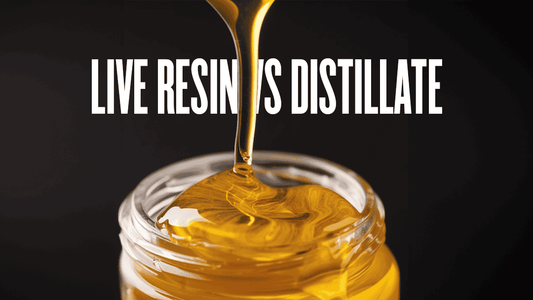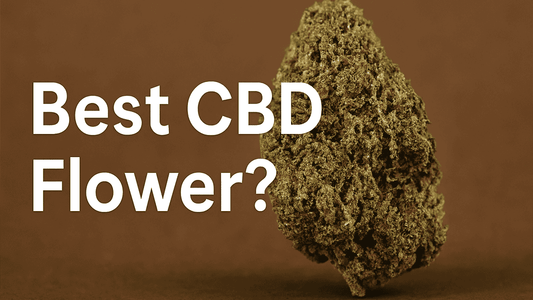The Uk has had legal hemp cultivation for a number of years - where specific genetics of low THC cannabis are permitted to be grown. Whilst CBD, the main cannabinoid found in hemp, is legal, the part of the plant where it is grown in most abundance cannot be legally harvested in the UK. For that reason, most of the CBD flower and CBD products are imported into the UK from countries like Italy and America.
Of course this makes little rational sense. The only thing that can explain the hemp situation in the UK is a culture of backwards information and avoidance of the truth.
These hemp cultivation laws are the backbone of what puts the UK CBD industry into a grey-area. It seems inefficient that the products can’t be legally produced locally, but can be legally imported from foreign countries. Surely, this inefficiency will cost our economy and outsource jobs that really should be going to UK citizens?
Fortunately for customers, this huge regulatory problem has not stopped a CBD scene from forming in the UK, and it has grown over the past 5 years. Since that time, there has been little regulatory change to open up the CBD market in the UK, rather, further walls have been built. Rather insultingly, the main issue - that almost all CBD in the UK cannot be legally grown domestically - has been ignored by legislators.
One might say that there's no evidence that you can have a regulated CBD industry in the UK, the rest of the world does fine without that. However, the rest of the world is outpacing us with regards to CBD regulation, making it clear that consumers and vendors are not being looked after by UK law makers. We just have to look at countries like Italy, Switzerland and Austria to see the potential for a regulated CBD hemp industry.
1. Creates More CBD Jobs

The UK hemp industry needs an improvement in hemp cultivation laws so that UK CBD brands stop relying on sourcing ingredients from foreign producers. In its current state, most of the CBD products in the UK are manufactured and grown abroad. As these products are being bought by UK customers, what we’re seeing is a loss of UK money, and an inefficient industry.
If the UK government could introduce hemp cultivation laws that enabled the growth of the CBD industry, this would introduce manufacturing and cultivation jobs here in the UK.
2. Improved Quality And Purity

The current lack of CBD regulation in the UK opens up many risks for consumers of these products. Without the need for manufacturers to provide lab certificates for cannabinoid potency, contaminants and more, there’s no way of knowing which CBD products are safe for consumption.
The lack of regulation has forced some producers to work around loopholes that force CBD products to be sold as ornamentals, with “not for human consumption”, on the label. This lack of regulation could be exploited by the “cowboys” of the CBD industry and cost people their health.
In the CBD Hemp Flower space, there is a common practice of manipulating lab tests so that the CBD potency appears much higher than it really is. Producers will often spray CBD flowers and buds with CBD isolate, so that they can obtain COAs that might seem more appealing to customers. Better regulation could prevent shady tactics like this from being employed in the UK.
3. Reduction In THC Abuse

Cannabis is mostly illegal in the UK. We’ve explained how some CBD can legally be imported into the country, however we are positive that without a prescription, most of the time THC would have to be sourced illegally. Black market cannabis doesn’t have any regulation, which poses many risks. The potency of cannabis from the black market is unpredictable, and most cannabis seized in the Uk has a potency of around 10-20% THC, which is certainly strong enough to induce some heavy highs.
Studies are showing that there is a relationship between all plant compounds that enhances the effect of cannabis as opposed to the effects of taking primarily one cannabinoid, like THC. Whilst THC won’t be harmful to everyone, there are variables that can increase the chance of risk. Having a regulated hemp flower and cannabis industry would increase the safety of British people by offering cannabis users the full spectrum of cannabinoids.
4. Potential reduction In UK Anxiety

Anxiety is a huge problem faced by many British people. N 2013 there were 8.2 million cases of anxiety in the uk, and we would not be surprised to see that number rise, especially post COVID 19 pandemic.
There have been many scientific discussions into how CBD could potentially be used in treatment for medical issues like anxiety. Research papers like this one on the very topic of CBD and anxiety show promise for how an improvement in our UK CBD hemp industry could potentially help reduce the number of people in this country that suffer.
5. Reduced Cigarette smoking

CBD hemp flowers are very popular for people fighting nicotine and cigarette addictions. Most of the CBD hemp flower experience is similar to that of the cigarette experience - especially when compared to hand rolled cigarettes. The great thing is that CBD buds do not have to be smoked to be consumed. More popular these days, they are vaporized to a temperature that releases minimal carcinogens as compared to combustion. Without a doubt, the combustion of cannabis is less damaging for our health than combusting tobacco, as proven in this study.
6. Tax Revenue & Economic Gains

Countries that have regulated cannabis, be that the THC side like Canada, or the CBD side like Switzerland, are now generating tax revenue from its sale. These sales would continue to occur with or without legalization, however there’s no way to track and collect black market transactions.
If legislators roll out regulations that harm CBD consumers, and prevent them from getting high quality effective products, those consumers will return to the black market. This does not benefit society as it eliminates the economic gains of cannabis, and puts consumers at a risk with potentially unclean cannabis.
7. Overall Mental Health Improvement

We briefly mentioned Anxiety above, which is a mental health problem. Let’s also look at the average cannabis consumer, that might not have preexisting mental health conditions that THC could exacerbate.
One of the issues with an unregulated cannabis scene is that consumers aren’t able to source all the information necessary to understand why they get high. information such as the risks of overstimulation of the brain through CB1 receptors are known to industry players, but not by the general cannabis consumer.
THC can have a negative effect if consumed on it’s own in large quantities due to overstimulation of the CB1 receptors, located around the brain. Interestingly, CBD is a THC agonist, and can help reduce the risk of brain overstimulation. A more open, regulated CBD hemp flower industry would help get that information out there and reeducate the average cannabis consumer to consider more cannabinoids than just THC.
Summary
It is clear that the UK could benefit from a regulated CBD hemp flower industry, especially as we are taking so long to form the legislation for a legal THC industry. What can you do to speed it up? It’s hard to say… Our estimate for a fully regulated CBD flower market in the UK is 5-10 years.

 4.6 Rating. Excellent.
4.6 Rating. Excellent.






